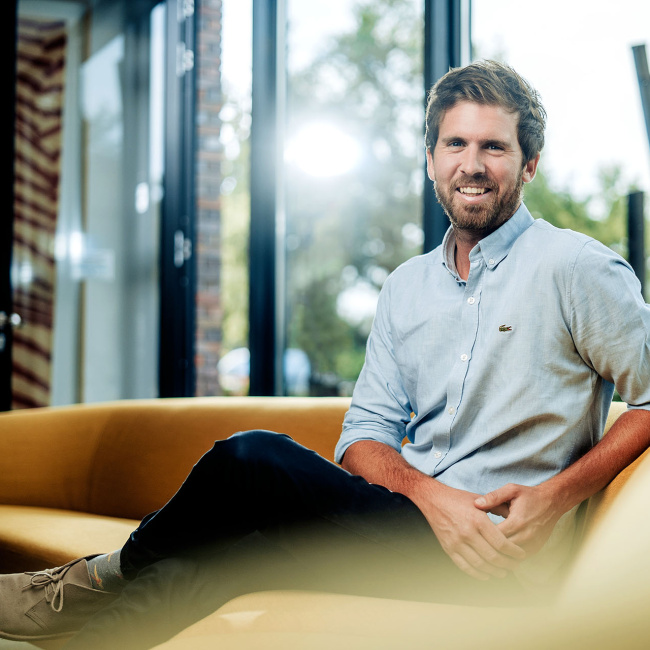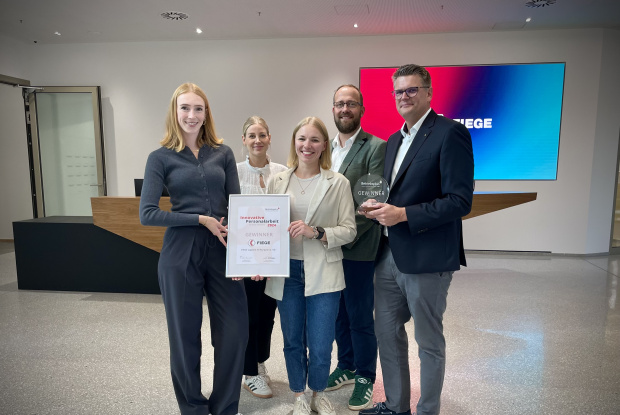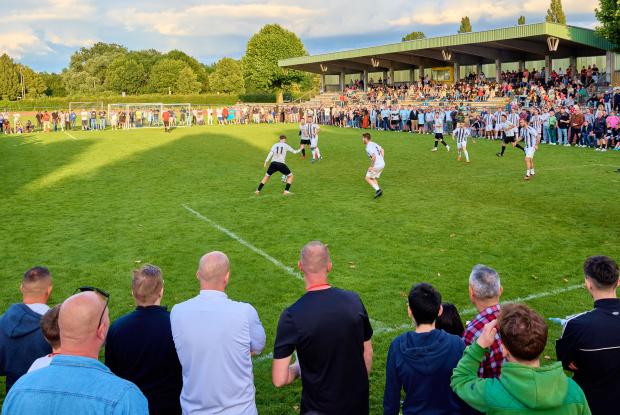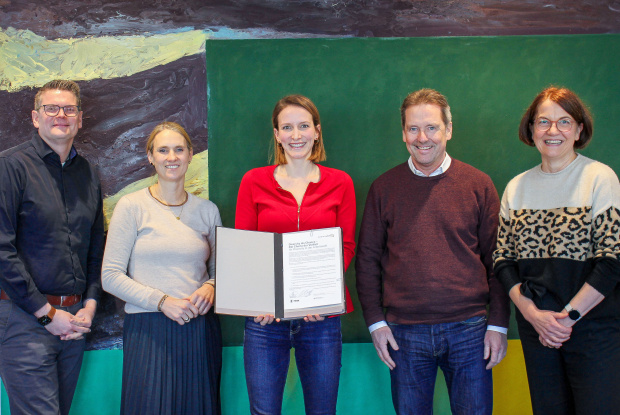One step back, two steps forward
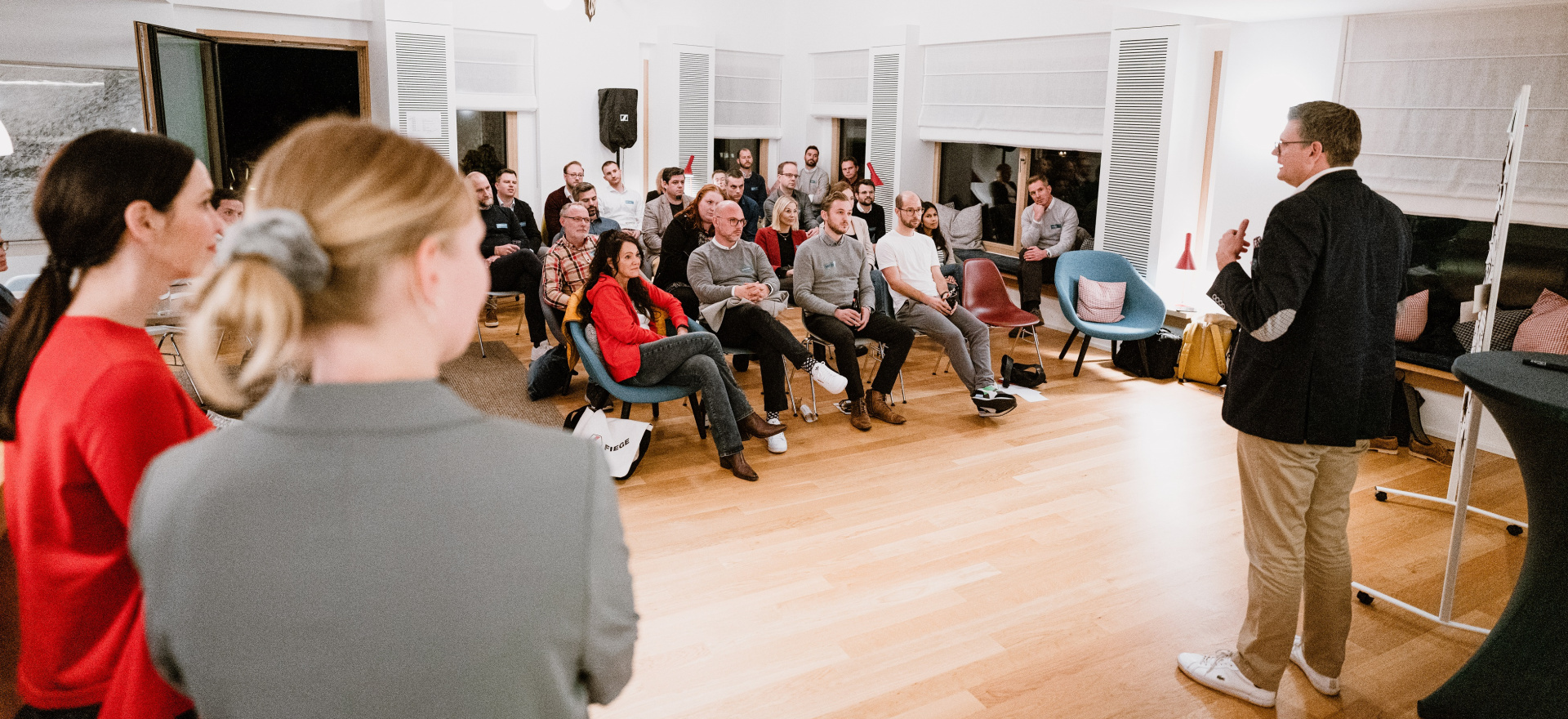
You learn from your mistakes – or so they say. However, the basic requisite for this is: Mistakes and their consequences must be made visible and openly addressed without reservations. In-house Fail Forward sessions allow FIEGE to create the starting point for a no-blame culture free of fear.
Corporate culture can only be shaped together, so FIEGE’s credo. “These past months, we have set many projects into motion and are undergoing a fundamental transformation process which can only succeed if we involve the entire organisation and all our colleagues”, Alexander Neudorf, Director People & Culture at FIEGE explains.
Next to topics like equality and leadership culture, FIEGE has been dealing intensely with its own no-blame culture for some months now. “To fail is to be human and part of life, both in our professional as well as our personal environment. Nobody expects others to not make any mistakes”, Neudorf says. “Nevertheless, mistakes, or rather dealing openly with them, are still taboo in many social spheres.”
A culture of openness
The reasons for this are manifold. Mistakes are often associated with shame or blame rather than being seen as a source of inspiration and improvement. For this reason, the People & Culture team has brought the new in-company Fail Forward series to life. Jens Fiege, Co-CEO of the FIEGE Group, said at the opening of the first session: “Especially as a family business, it is our task to break with existing taboos and to promote a culture of openness, to benefit as individuals and as an organisation overall from these lessons.”
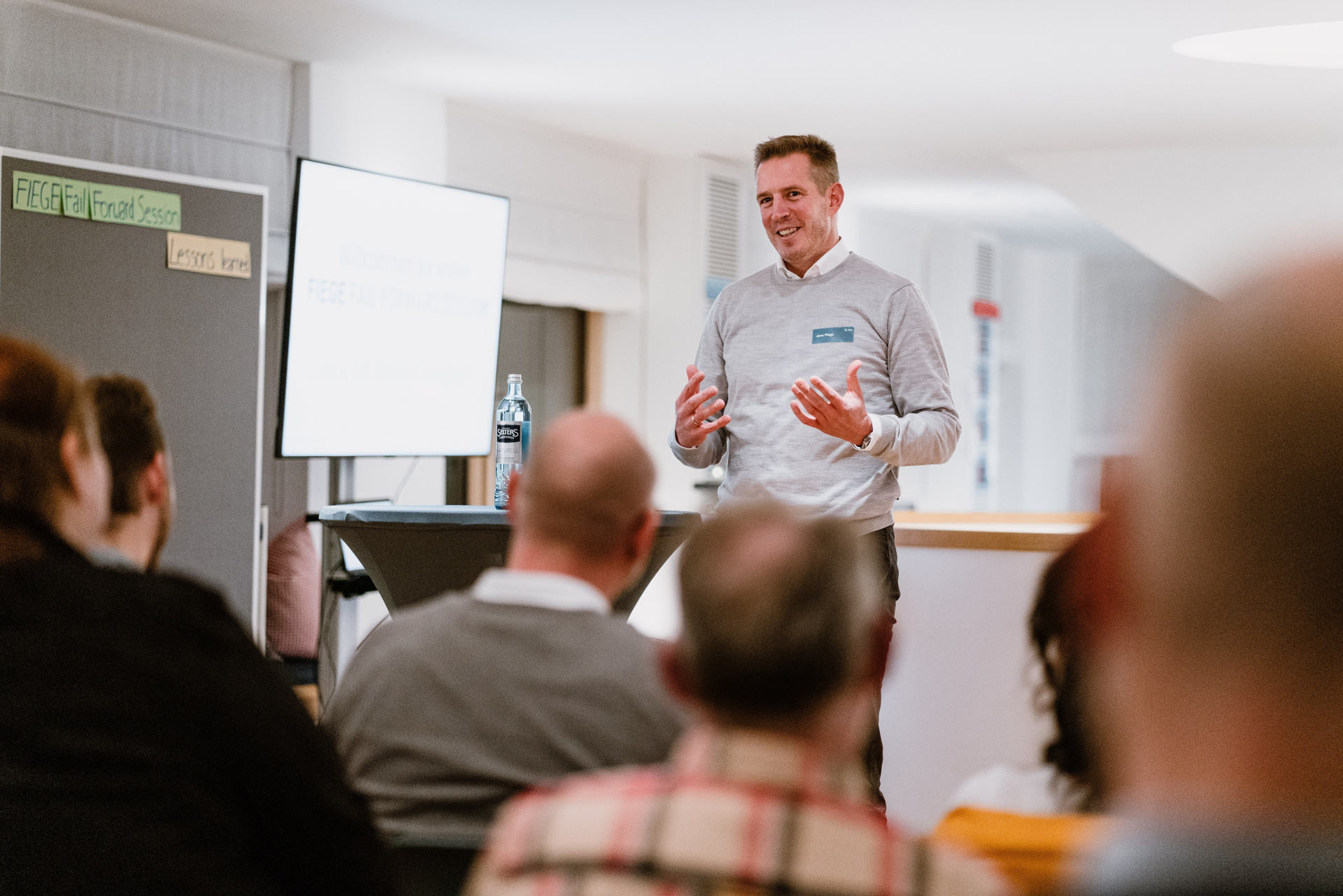
Jens Fiege, Co-CEO of the FIEGE Group, opened the first Fail Forward session.
The format is loosely based on the so-called Fuckup Nights. The idea originates from Mexico but quickly became popular around the world – and the concept behind it is simple and charming. In essence, it is about sharing a personal or business failure in a relaxed, at times humorous manner and talk about one’s ‘fuck-ups’ in a laid-back atmosphere. “We wish to look behind the scenes at what is at times an ugly reality, to learn from and with each other and mutually help one another. The truth can at times be rather painful, but it helps us to question ourselves and to grow”, is how Jens Fiege describes the intention of the series of events.
Taking a stance, extending trust
The first Fail Forward session was organised by the Leadership & Culture Partnering at FIEGE. The aim is to cultivate an open no-blame culture through conscious inspiration, and carry the topic from the sessions into the entire organisation. Charlotte Heithoff, Leadership and Culture Partner at FIEGE, says: “It is deeply anchored in FIEGE’s DNA that we constantly evolve, are courageous, and continue to try new things. So naturally, every now and then, you flounder – that is totally normal and part of the game. If we set out to research the causes for this and talk about it, failing will take us a vital step forward.”
Yet, it is intentionally not about professional failures. “It is important for us that we as a FIEGE community treat the personal problems of our colleagues sensitively and offer help”, Heithoff explains. What is needed for this? Mindfulness, empathy, and a protected space for talks in particular. “We need to lead by example, create the necessary trust and thus cultivate acceptance about openly dealing with mistakes”, Heithoff says.
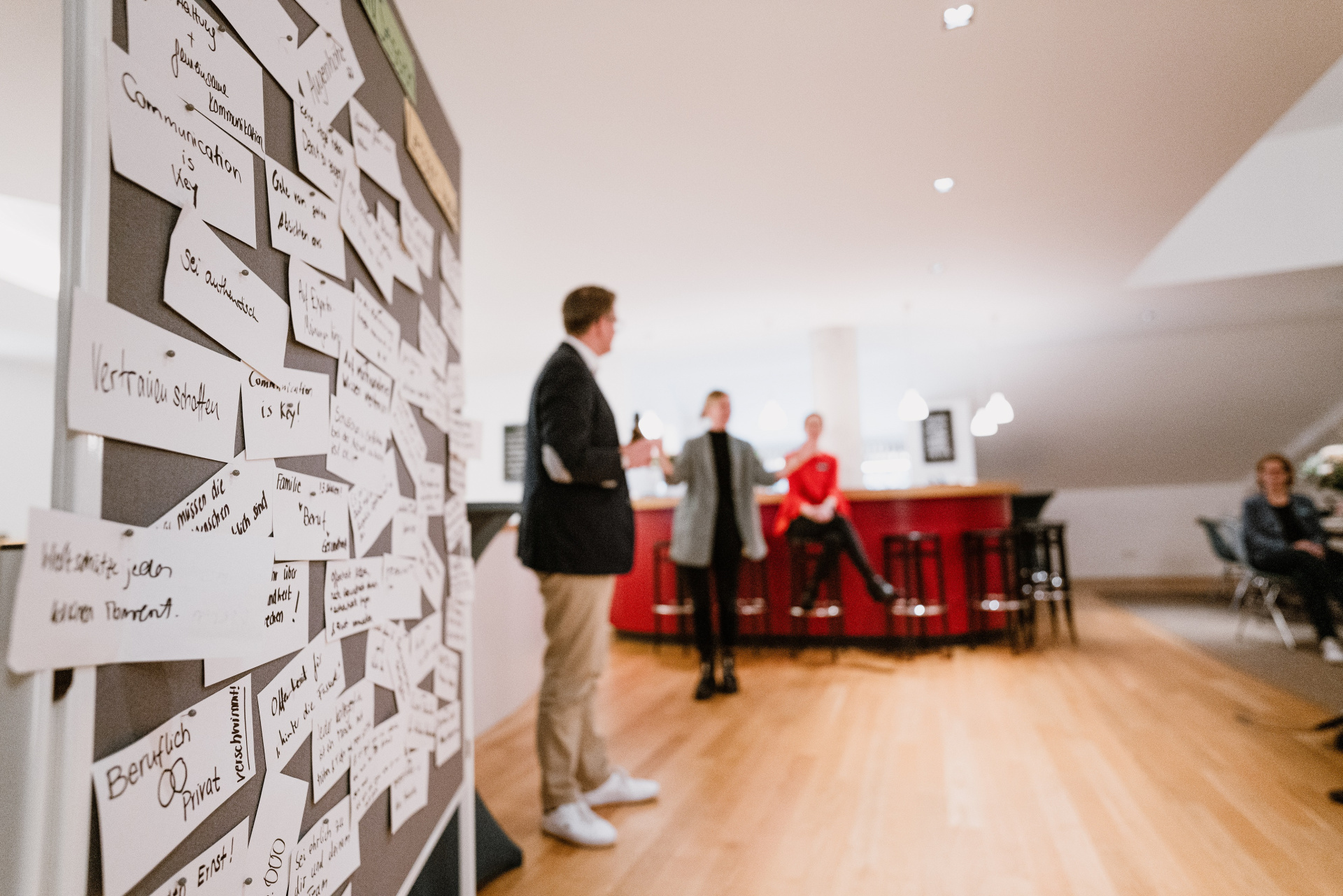
At the end of the Fail Forward session, the participants shared their personal learnings from the event.
Successful start
For the first session in front of around 30 participants, one external and two in-house speakers were invited to share their personal experience about failing on stage. The speakers often openly shared what they had learned from their failures – ultimately triggering a mental process amongst their audience and a fruitful discussion. Set in a living-room-like atmosphere and with the help of a cold drink, the participants shared their personal failures and the lessons learned from this event. The lively need for dialogue documented how important and valuable the concept is. Alexander Neudorf summed things up like this: “It is not about not making mistakes, but rather about the honest willingness to allow for a mistake to happen and grow as a result of it. We would like for you to take this as a message with you, to share it within our organisation and to inspire your teams to hold these types of events.”
